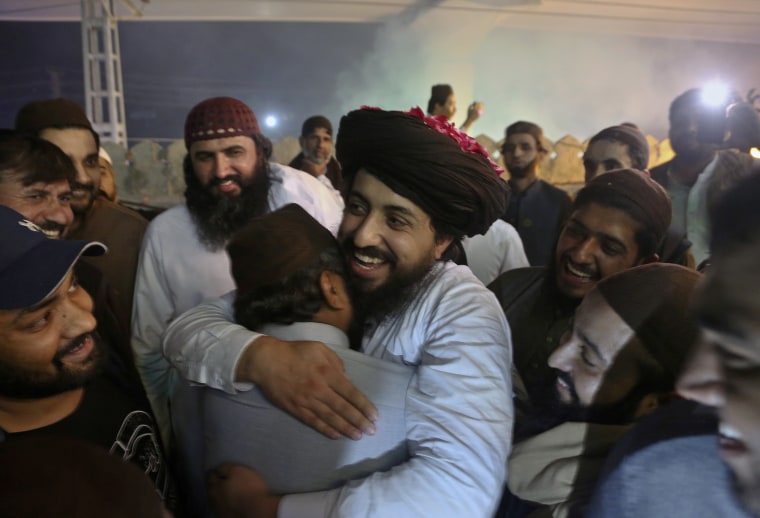LAHORE, Pakistan — Pakistan freed a hardline Islamist leader on Thursday, a week after removing his name from a terrorism watch list under a deal to end weeks of deadly protests by his followers, the government and his lawyer said.
Saad Hussain Rizvi, the chief of a Sunni militant group — Tehrik-e-Labaik Pakistan (TLP) — was released from a jail in Lahore city, a government spokesman, Hasaan Khawar, told Reuters. His lawyer Muhammad Rizwan confirmed the release.
"By the grace of God, he is a free man now," he said.
Download the NBC News app for breaking news and politics
The release came two weeks after the government of Prime Minister Imran Khan agreed to free over 2,000 detained members of the TLP movement, lifted a ban on the group and agreed to let it contest elections.
In return, the TLP would shun the politics of violence and withdraw a demand to have France's ambassador expelled over the publication of caricatures of the Prophet Mohammad by a French magazine, negotiators have said.
The TLP took to the streets in mid-October, kicking off weeks of protests and clashes that killed at least seven police officers, injured scores on both sides and blocked the country's busiest highway.
Khan's government had designated the TLP a terrorist group and arrested Rizvi amid similar violent protests earlier this year.
The TLP, which can mobilize thousands of supporters, was born in 2015 out of a protest campaign to seek the release of a police guard who assassinated a provincial governor in 2011 over his calls to reform blasphemy legislation.
It entered politics in 2017 and surprised the political elite by securing more than 2 million votes in the 2018 election.
The next national election is scheduled for 2023, and analysts expect political groups to start gearing up from early next year.
